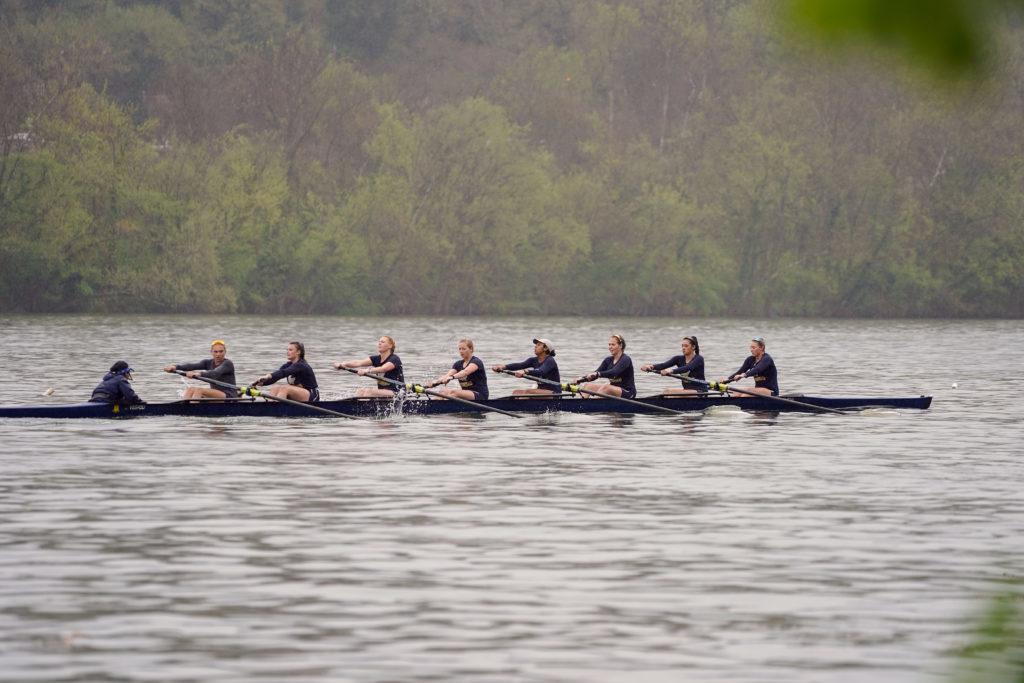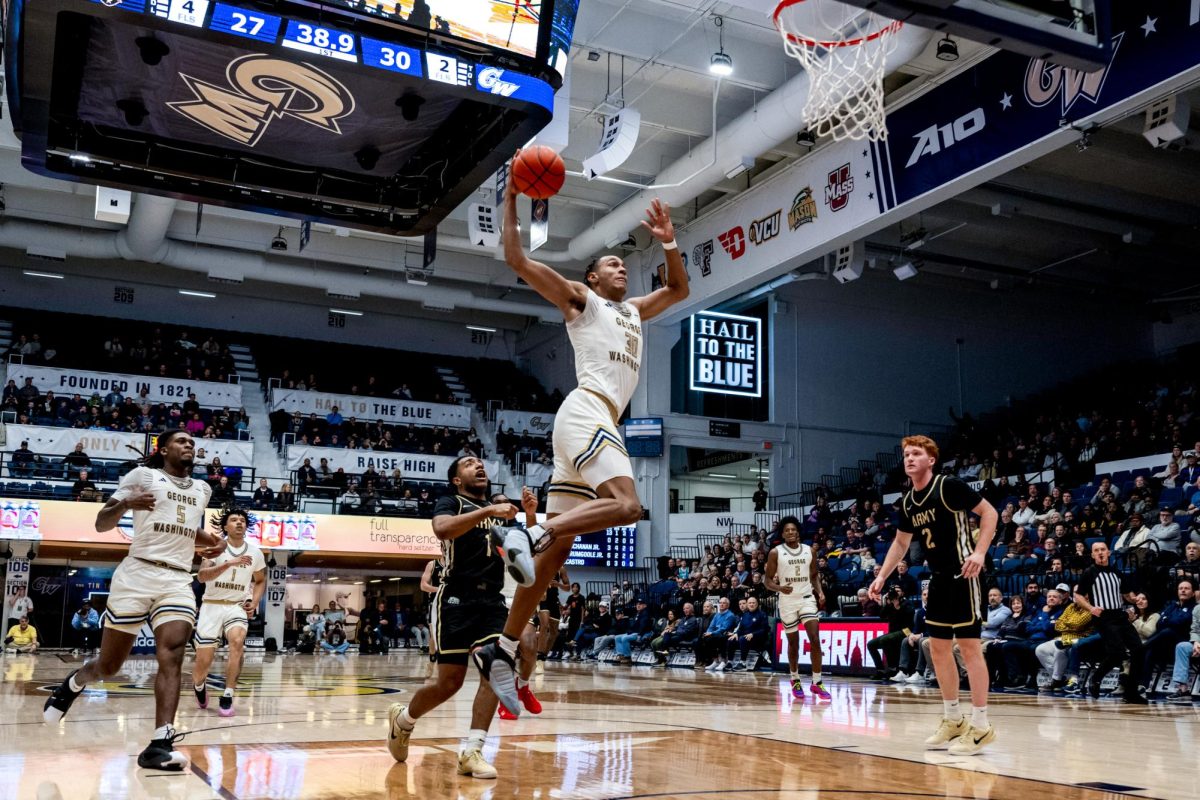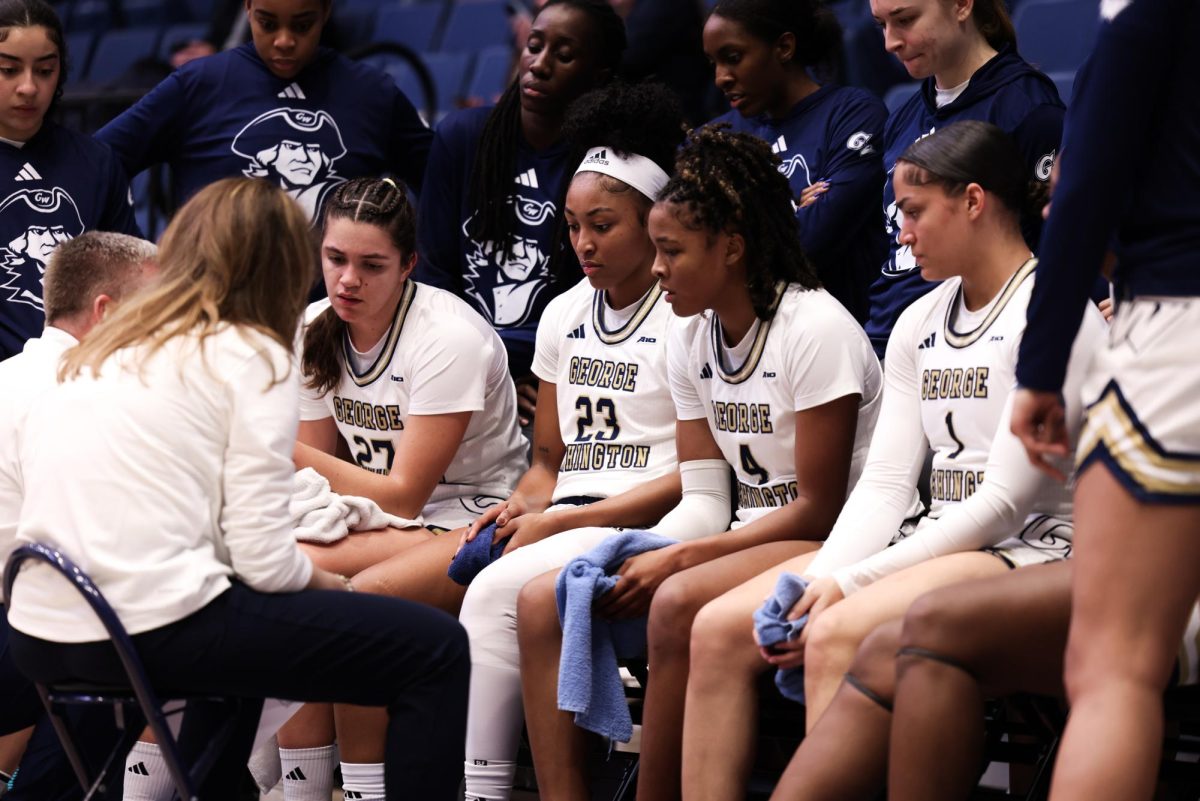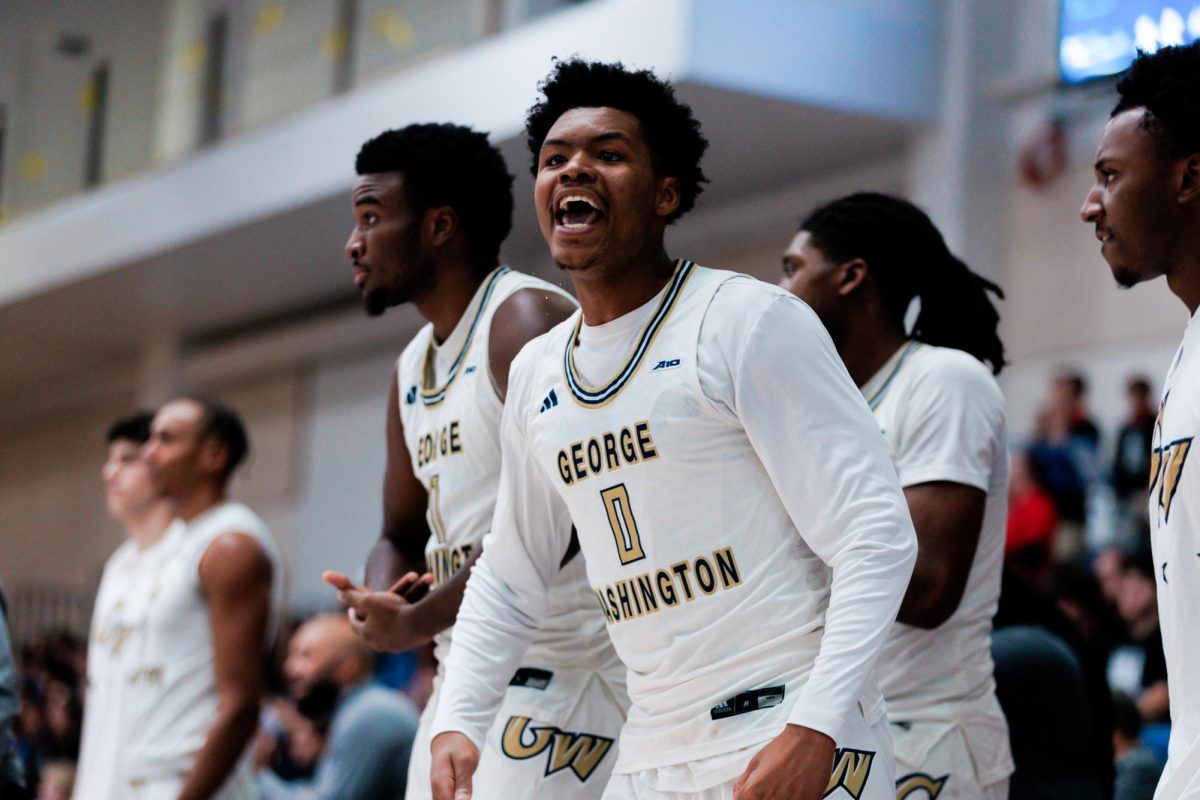Updated: Oct. 3, 2019 at 2:46 a.m.
After a year of adjustment and transition, women’s rowing is beginning its 2019-20 season with heightened expectations.
Last season, head coach Marci Robles led the Colonials to their best Atlantic 10 finish in program history in her first year at the helm. After spending a year adapting to Robles’ coaching style, rowers said they set their sights on the NCAA Division I Rowing Championship – a feat the program has only achieved once in 1998.
Junior Olivia Herbstritt said last year’s team was in an adjustment period, getting to know Robles’ coaching style and expectations for the team. But this season, she added, the squad is synced and ready to reach for a NCAA championship.
“The NCAAs are the goal,” Herbstritt said. “I think last year we were in a different mindset, given new coaching staff, people coming in. Definitely an adjustment year where we weren’t all on the same page. But now, our first priority is winning A-10s and going to the NCAAs.”
GW’s first and only NCAA Championship berth came in 1998. The Colonials nabbed second in the A-10 and sent their Varsity 8 boat to the national competition.
Prior to Robles, the team had been on an upward trajectory since 2015 after it placed seventh in the A-10 Championship. In 2016, the team tied for fifth, and the squad elevated its placing to third the next season. The Colonials repeated their third-place finish in 2018.
Eric Carcich, the former women’s rowing coach, resigned in 2018 to take the women’s rowing head coach position at Cornell. In his nine years with the program, the Colonials nabbed four top-three finishes.
Herbstritt said the squad is poised for a return to the top of the NCAA and a first-place finish at the A-10 Championship given its top performance last season.
“Seeing the goal so close to us and so within our reach, we definitely have gotten a taste of what we can do and we can see the end goal within our sights, and doing that and getting that gold is attainable,” she said. “It’s now something that’s going to happen.”
Robles said when she took over as head of the program, she implemented some new rowing techniques and focused on altering the way the team watched the boat move. She said the slight changes gave the squad more powerful strokes.
Opening the new season at the Head of the Potomac Regatta Sept. 22, Robles said the team’s performance at the event went “as expected.” The squad raced two boats, finishing second and third in the women’s open eight with times of 17:10.1 and 17:27.5, respectively.
She added that the competition was a “positive” way to start the season after flooding led to the Head of the Potomac’s cancellation last year.
“For us to be able to put together our first 5,000 piece at race pace with only a few days on the water was just a great opportunity to get a sense of where we are fitness-wise,” Robles said.
After losing six seniors to graduation last year, the Colonials enter the new season with a roster of just 31 rowers, down from 40 last season. But Robles said illness and injury hurt the team last season, and strong physical health will help rowers find success this year.
“That’s the first step, it’s making sure that we have people that are healthy and ready to get to work,” she said. “We had a really good complete roster at practice and that’s a big step in the right direction.”
The squad’s fall schedule features three regattas. About a month after the Head of the Potomac, the team will row in the Princeton Chase and wrap its season Nov. 2 at the Head of the Occoquan.
Sophomore Alexa Nealy said the team is looking to use some of the smaller tournaments, like Head of the Potomac, as training opportunities for more competitive races later in the season, including the NCAA tournament in May.
“We actually treated Head of the Potomac as a practice, in a way a training day, because we actually rode two relatively even eights,” Nealy said. “So I think the goal there was to get the feel of racing so when we go to more important races down the line, we’ve got the skillset that we need.”
Nealy said the team’s focus this year is to train with the mindset of a “yearlong project,” with the end result being NCAA success. She said the goal could motivate rowers to maintain physical health.
“Now we’re training smarter, not harder,” Nealy said. “We’re really big on pushing ourselves, obviously, but not hurting ourselves.”
This post was updated to reflect the following correction:
The Hatchet incorrectly reported Alexa Nealy’s last name. It is now corrected. We regret this error.
Editors note: A quote from Alexa Nealy was updated to better reflect her statement.





